
- Shandong Loyal Industrial Co.,Ltd.
- SHORT-CUT PASTA PRODUCTION LINE LONG-CUT PASTA PRODUCTION LINE INSTANT PASTA PRODUCTION LINE
Home> Application> Unleashing Innovation: Full Automation for a High-Efficiency Macaroni Production Line

Unleashing Innovation: Full Automation for a High-Efficiency Macaroni Production Line
Unleashing Innovation: Full Automation for a High-Efficiency Macaroni Production Line
Introduction
The journey of macaroni production dates back to traditional methods, where craftsmanship played a vital role. As the demand for macaroni surged, the industry witnessed a need for innovation to meet the growing requirements efficiently.The Macaroni Pasta Production Line technology of Shandong Luoya Industrial Co., Ltd. has introduced advanced technologies from Unifood Machinery and Tecalit .
In the modern landscape, the significance of full automation in the macaroni production line cannot be overstated. Automation not only streamlines processes but also ensures a level of efficiency that is crucial for meeting the demands of a dynamic market.

Unleashing Innovation in Macaroni Production Line
Full automation in the macaroni production line involves the seamless integration of advanced machinery and smart technologies. This includes automated mixing, extrusion, drying, and packaging processes. Case studies of industry giants such as Barilla, De Cecco, Creamette, San Giorgio, and Great Value exemplify successful implementations of full automation.
Cutting-edge technologies are transforming the macaroni production sector. From sophisticated extruders to artificial intelligence-driven quality control, these innovations contribute to the efficiency of the automated macaroni production line. The integration of smart technologies further enhances the precision and effectiveness of the entire process.
High-Efficiency Processes in Macaroni Production
Efficiency stands as a cornerstone in macaroni production, influencing both output and quality. A streamlined macaroni production line not only ensures consistency in the final product but also positions manufacturers competitively in the market.
Efforts to optimize efficiency go hand in hand with energy-saving innovations. The adoption of energy-efficient technologies, as seen in the practices of industry leaders, contributes not only to cost savings but also aligns with sustainable production methods. Case examples from Barilla, De Cecco, Creamette, San Giorgio, and Great Value showcase successful energy-saving initiatives.
Unleashing Innovation: Case Studies
Several companies have achieved remarkable success through the adoption of full automation in their macaroni production lines. These case studies demonstrate a tangible transformation in production efficiency, illustrating the positive impact of automation on the industry.
Practical examples highlight how innovation has enhanced efficiency in macaroni production lines. The industry has witnessed notable improvements in production speed, product consistency, and overall operational efficiency, setting new benchmarks for excellence.
Future Trends in Macaroni Manufacturing
The future of macaroni production holds exciting prospects with emerging technologies. Robotics, automation enhancements, and data-driven insights are expected to redefine the capabilities of macaroni production lines, ensuring continuous optimization.
The discussion on future trends extends to sustainable practices. The evolving landscape of macaroni production emphasizes responsible sourcing, eco-friendly packaging, and energy-efficient processes. Sustainability becomes a key factor in future-proofing the macaroni production industry.
Conclusion
In summary, the exploration of unleashing innovation in the macaroni production line underscores the transformative power of full automation and high efficiency. These elements are not mere trends but essential strategies for sustained success in a competitive and ever-evolving industry.
FAQs: Frequently Asked Questions about Macaroni Production Line
1. What is a Macaroni Production Line, and how has it evolved over time?
A Macaroni Production Line is a mechanized system that integrates various processes, including mixing, extrusion, drying, and packaging, in the production of macaroni. Over time, the evolution of this line has seen a shift towards full automation, enhancing precision and efficiency.

2. How does full automation benefit the macaroni production process?
Full automation in the macaroni production line eliminates manual intervention, ensuring consistency and precision. This benefits the production process by optimizing efficiency, reducing errors, and meeting the demands of a rapidly evolving market.
3. Can you provide examples of successful implementations of full automation in macaroni production?
Industry giants like Barilla, De Cecco, Creamette, San Giorgio, and Great Value serve as excellent examples of successful implementations of full automation. These companies showcase how automation has transformed their macaroni production lines, resulting in increased efficiency and product quality.
4. What role do technological advancements play in enhancing efficiency in macaroni production?
Technological advancements, including advanced extruders and smart technologies, contribute significantly to the efficiency of macaroni production lines. These innovations improve precision, reduce production time, and enhance the overall quality of macaroni products.
5. How does sustainability factor into the future of macaroni production?
Sustainability is a key consideration for the future of macaroni production. Initiatives such as responsible sourcing, energy-efficient technologies, and eco-friendly packaging contribute to reducing the environmental impact of the industry, aligning with global sustainability goals.
6. Can a streamlined macaroni production line help in meeting consumer demands?
Yes, a streamlined macaroni production line is essential for meeting consumer demands. Efficiency in the production process ensures a consistent and high-quality end product, allowing manufacturers to adapt to dynamic consumer preferences and market trends.
7. What emerging technologies are expected to shape the future of macaroni production lines?
The future of macaroni production lines will be influenced by emerging technologies such as robotics, enhanced automation, and data-driven insights. These technologies are poised to further optimize processes and redefine the capabilities of the macaroni manufacturing industry.
8. How do industry leaders address sustainability in macaroni production?
Industry leaders like Barilla, De Cecco, Creamette, San Giorgio, and Great Value address sustainability through initiatives like energy-efficient technologies and responsible sourcing of ingredients. These practices contribute to reducing the environmental footprint of macaroni production.

9. Why is it important to future-proof the macaroni production industry?
Future-proofing the macaroni production industry is crucial to adapt to changing market dynamics, consumer preferences, and global challenges. Embracing innovation, sustainability, and efficiency ensures the long-term success and resilience of the industry.
10 In conclusion, how does full automation and high efficiency contribute to the future of macaroni production?
Full automation and high efficiency are transformative elements for the future of macaroni production. These practices not only enhance productivity and product quality but also position the industry to meet future challenges and consumer expectations with agility and innovation.
Contact Us

- Shandong Loyal Industrial Co.,Ltd.
- Telephone+86 13176674591
- Email[email protected]
- WhatsApp+86 13176674591
- WeChat13176674591
- AddressC623, Jiahui Global Plaza, No. 548, Beiyuan Street, Tianqiao District, Jinan City, Shandong Province
- Factory AddressADD -300m North of Zhangxia Industrial Park, Binhe Road, Zhangxia Town, Changqing District, Jinan
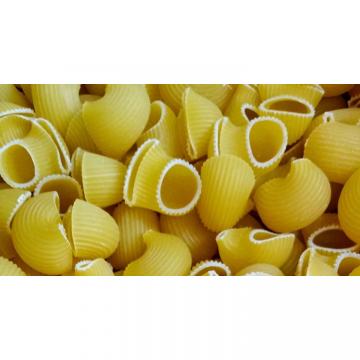



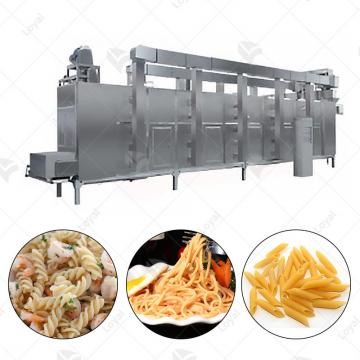
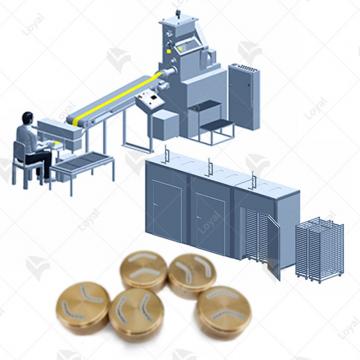 Combined Automatic Pasta Sheeter
Combined Automatic Pasta Sheeter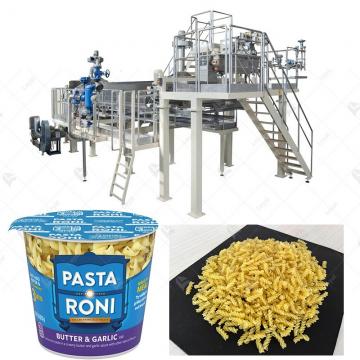 Instant Pasta Production Line
Instant Pasta Production Line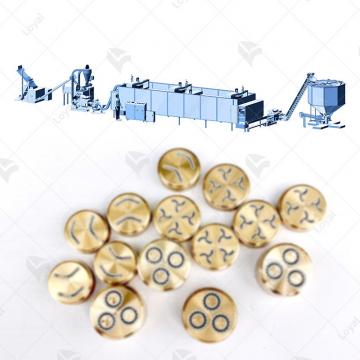 Short-Cut Pasta Production Line
Short-Cut Pasta Production Line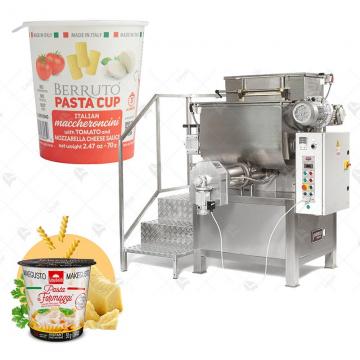 INSTANT PASTA CUP PRODUCTION LINE
INSTANT PASTA CUP PRODUCTION LINE